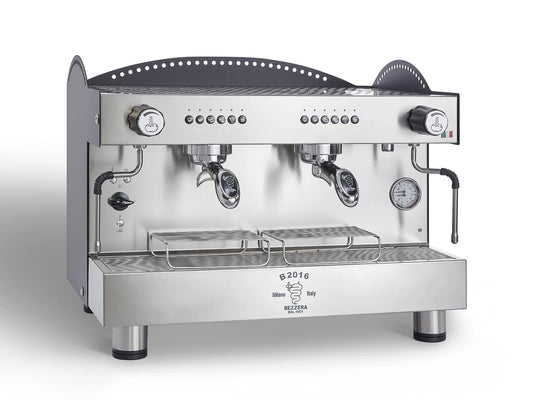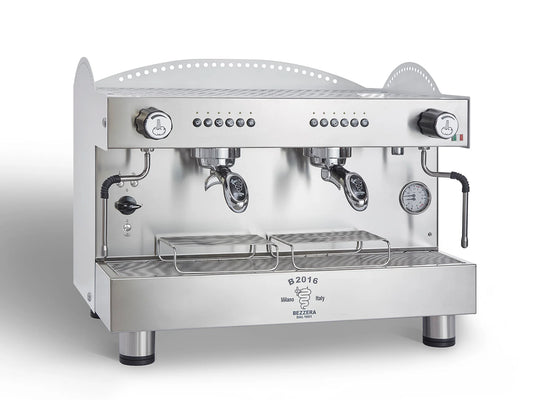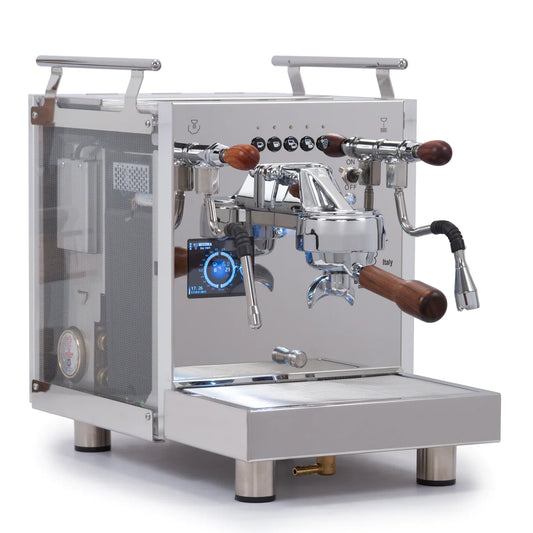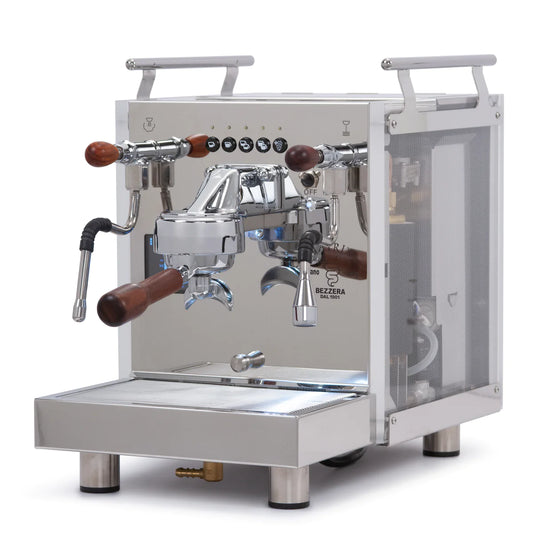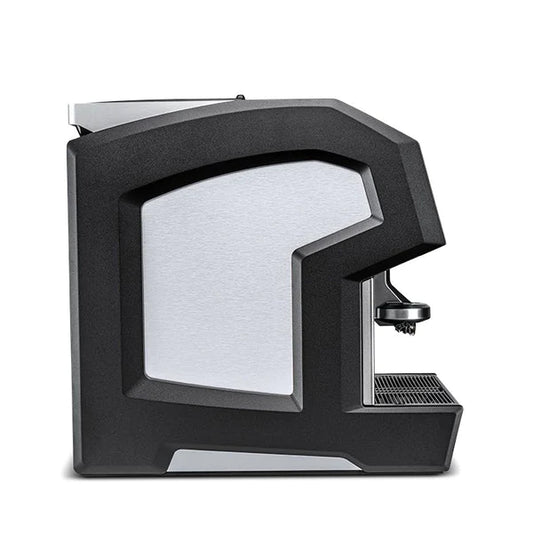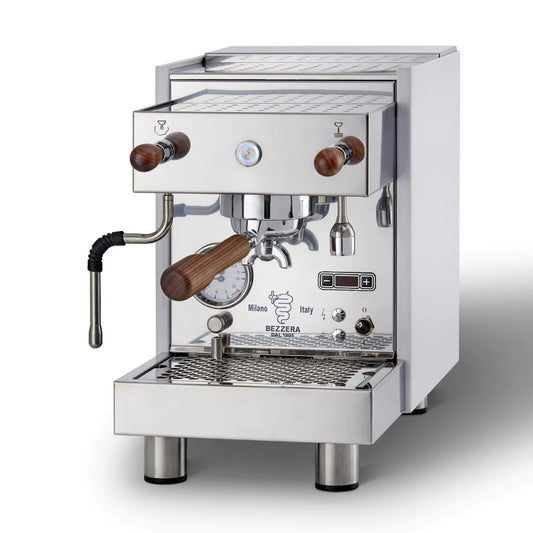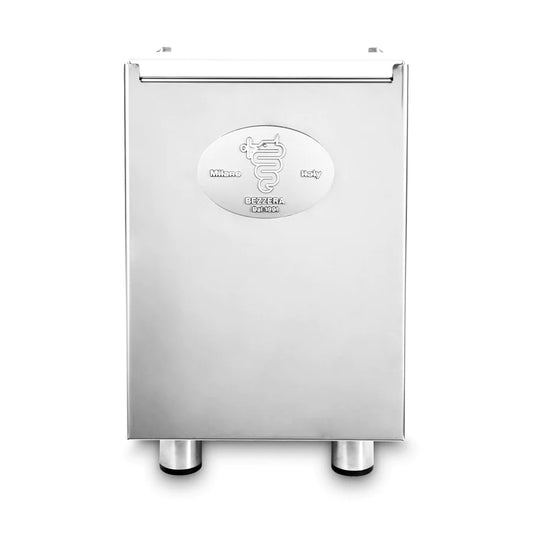Swiss Coffee Supplier Thermoplan Faces Challenges Amid U.S. Tariffs
Table of Contents
- Key Highlights
- Introduction
- The Tariff Crisis: A Calculated Risk
- Strategic Shift: Manufacturing in Germany
- The Broader Economic Impact
- The Fight for Competitive Advantage
- A Community's Reaction
- The Ongoing Negotiations and Future Outlook
- Navigating the Next Steps
Key Highlights
- Thermoplan, a key supplier for Starbucks, is grappling with a 39% tariff on Swiss goods, leading to significant financial losses and considerations to relocate production.
- The company's CEO, Adrian Steiner, reported weekly losses of approximately $250,000 due to tariffs, with potential job losses in the thousands looming in the Swiss mechanical engineering sector.
- As a contingency, Thermoplan plans to start production in Germany to benefit from lower European Union tariffs and minimize the impact on its U.S. sales.
Introduction
The intricate web of international trade is once again under scrutiny as Swiss coffee machine maker Thermoplan navigates the turbulent waters of U.S. tariffs. As a pivotal supplier for Starbucks, Thermoplan's operations are being threatened by a staggering 39% levy on Swiss goods, leading the company to re-evaluate its manufacturing strategies. In a landscape marked by rising protectionism, Thermoplan's predicament is emblematic of the challenges faced by many firms reliant on global supply chains. The stakes are high—not only for Thermoplan's financial viability but also for the broader implications on employment and competitiveness within Switzerland's mechanical engineering sector.
This article delves into the ramifications of these tariffs, explores the potential shifts in production strategies, and examines the broader impact on the Swiss economy and its export sector.
The Tariff Crisis: A Calculated Risk
Thermoplan, headquartered in Weggis, Switzerland, has long been celebrated for its precision-engineered coffee machines, a staple in Starbucks locations worldwide. However, following the announcement of heavy tariffs by the Trump administration in April, the company has faced escalating financial strain. CEO Adrian Steiner highlighted that the tariffs are not merely a line item on the balance sheet but a serious threat to the company's operational viability, with estimates indicating weekly losses of about 200,000 Swiss francs, or roughly $250,000.
The sharp rise in tariffs is compounded by additional levies on industrial metals, creating a perfect storm for Thermoplan. Steiner's stark declaration, "We’re bleeding," underscores the immediate urgency of the situation. The question looms larger: how can Thermoplan recalibrate its production model to mitigate these losses?
Strategic Shift: Manufacturing in Germany
In response to the looming crisis, Thermoplan is contemplating a strategic pivot towards Germany—a country that offers a more favorable tariff landscape under the European Union trade agreements. The plan entails establishing a production facility in Germany, thus enabling the company to export its goods with reduced tariffs. This move aims to cushion the blow from U.S. tariffs and secure a competitive edge in the market.
Currently, all of Thermoplan's manufacturing occurs in Switzerland, relying heavily on local suppliers for the majority of its components. Approximately 82% of parts are sourced domestically, creating a strong tie to Swiss manufacturing standards and quality. However, the company's export strategies hinge on adapting quickly to changes in tariffs and trade policies. By moving production to Germany, Thermoplan hopes to maintain its robust relationship with Starbucks while ensuring compliance with U.S. customs regulations concerning goods deemed EU-produced.
The Broader Economic Impact
Thermoplan's predicament is not an isolated case; rather, it reflects a broader trend within the Swiss mechanical and electrical engineering sectors. Recent statistics indicate that about 14% of the Swiss export economy is reliant on the U.S. market. In stark terms, if the current tariff structure remains unchanged, an estimated 80% of exports from the Swiss machinery sector—worth approximately 10 billion francs—could evaporate.
Jean-Philippe Kohl, the deputy head of Swissmem, the industry's association, emphasizes the critical nature of this situation, stating that nearly a third of Swiss firms are contemplating relocating production to the EU to counteract tariff pressures. The consequences of these decisions are profound, with projections suggesting that job losses in the sector could escalate dramatically. Between 3,000 and a staggering 30,000 jobs are at risk by the end of 2026, underscoring the potential long-term damage to the Swiss economy.
The Fight for Competitive Advantage
For Thermoplan and its peers, securing a competitive advantage must consider the intricacies of U.S. customs regulations. Steiner has made it clear that the company is seeking timely guidance from U.S. customs to confirm whether its goods manufactured in Germany would qualify for reduced tariffs. The urgency of this clarification cannot be overstated; a decision could shape the company's operational strategies for years to come.
However, challenges abound. Steiner is wary that the proposed workaround might not satisfy U.S. officials, potentially leaving Thermoplan in a precarious position. Given the complexity of navigating trade rules and the unpredictable nature of political decisions, the path forward remains fraught with uncertainty.
A Community's Reaction
The sentiment in Weggis is one of disbelief and concern as residents express anxiety over the fate of Thermoplan. The town relies heavily on the company, whose innovative products bolster local pride and economic stability. Businesses, families, and employees are intertwined with Thermoplan's future, making the consequences of its tariff struggles deeply personal for many in the community.
The specter of job losses within the region is particularly alarming. As news of relocation plans and tariff effects trickle in, local officials and stakeholders stress the importance of swift action to address the potential fallout. The broader implications for the local economy hinge upon the ability of firms like Thermoplan to adapt and innovate amid shifting trade policies.
The Ongoing Negotiations and Future Outlook
While Thermoplan scrambles to adjust, Switzerland's government is actively engaged in negotiations aimed at reducing tariffs. Diplomatic efforts to rectify the situation underscore a commitment to preserving the integrity of the Swiss export economy.
Yet the potential for other countries to mimic the U.S. approach of employing tariffs looms large, presenting a cautionary tale for global trade relations. If such actions proliferate, the fragile balance of international trade could shift, leading to a new era of protectionism that threatens the global economy.
In this climate, companies are forced to innovate beyond manufacturing. Strategic partnerships, diversification of product lines, and brand expansion may provide critical avenues for preserving competitive advantages in uncharted waters.
Navigating the Next Steps
As Thermoplan considers its future, the company faces critical decisions that could redefine its operational framework. The implementation of production strategies in Germany is one part of a multi-faceted solution aimed at preserving market position and profitability. However, these decisions are not without risk; establishing a new manufacturing facility and hiring a workforce involves significant capital investment and operational upheaval.
Over the next year, action is imperative. Should Thermoplan pursue a transition to U.S. manufacturing, it may take over two years to bring a new facility online—adding further time to its competitive response. For now, the company remains in a precarious limbo, caught between the realities of tariff policies, operational capacity, and future growth prospects.
FAQ
What are the current tariffs affecting Thermoplan?
Thermoplan is currently facing a 39% tariff on Swiss goods, which is significantly impacting its profit margins.
Why are these tariffs a concern for Thermoplan?
The steep tariffs lead to estimated weekly financial losses of around $250,000, threatening the company's viability and operational continuity.
How is Thermoplan responding to the tariffs?
The company is considering relocating production to Germany to benefit from lower EU tariffs and reduce the financial burden associated with U.S. tariffs.
What are the potential job impacts in Switzerland's mechanical engineering sector?
The sector could see job losses range from around 3,000 to as high as 30,000 by the end of 2026 if the tariff situation remains unchanged.
What are the broader implications of these tariffs on the Swiss economy?
If the tariff situation continues, it may result in substantial declines in exports from the Swiss mechanical and electrical engineering sector, jeopardizing thousands of jobs and restructuring the industry.

